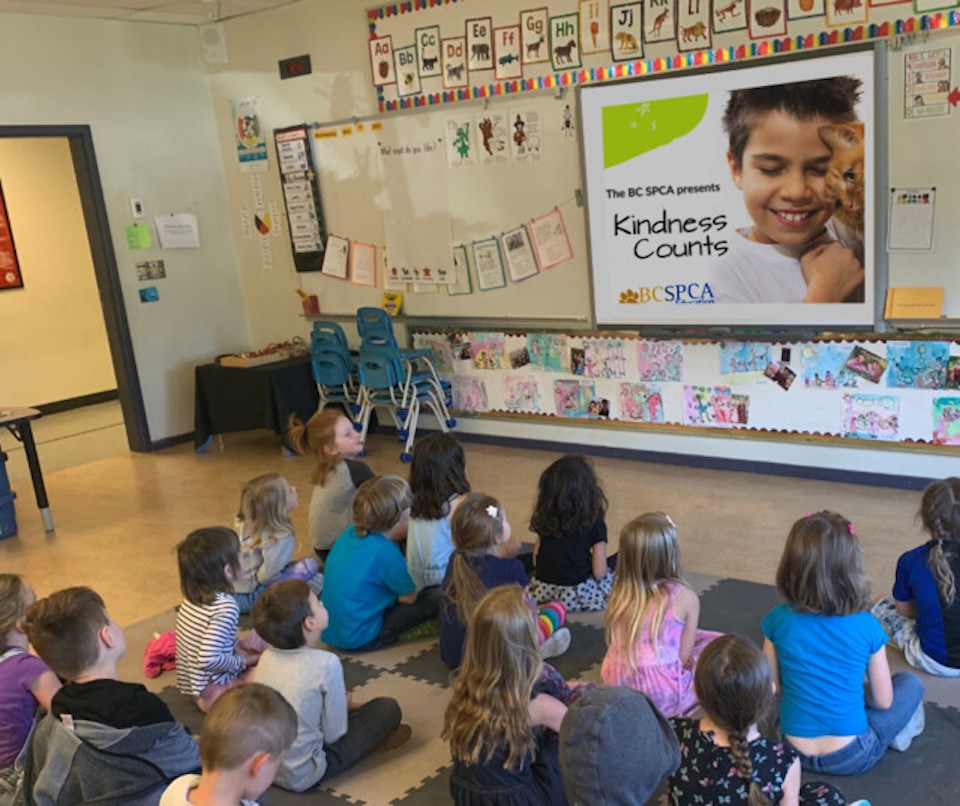The BC SPCA is stopping at schools across the province to teach kids empathy in an effort to help stop bullying.
The SPCA says focusing on empathy development with pets can be key in helping young people understand the consequences of bullying.
Through its humane education programs, which reaches thousands of B.C. children each year, the BC SPCA is helping young people put themselves in the place of others and to think and feel from another’s perspective.
“Developing empathy is a skill that needs to be taught and practiced,” says Craig Naherniak, BC SPCA general manager, humane education.
“We focus on helping young people understand how their attitudes and behaviours impact all animals, from pets to wildlife.”
He says the SPCA’s summer camps, school presentations, Kids Club, animal clubs and workshops are geared to helping students gain a deeper understanding of their place in the world by exploring the connections that exist between animals, humans and the environment.
The program targets youth between the ages of 5 and 13, which is a key development time for both learning empathy skills and demonstrating compassion for others.
“This is the age range when children are able to understand how their actions impact others and when children are beginning to create their own social networks, including the close connections they have with animals,” says Naherniak.
The development of empathy, kindness and pro-social skills is crucial at all age levels in tackling bullying, he added.
“Understanding that our actions can impact others both positively and negatively shares the message with young minds that while humans may have the capacity to cause harm to animals and the environment, we as individuals also have the power to make a difference.”
He says research on the impact of teaching humane education to children shows that children who have participated in these programs score higher on empathy scales.
“They also show an increase in prosocial skills, a better ability to regulate their emotions and more helping behaviours.”
A key component of the BC SPCA’s programming involves recognizing the shared emotions and needs that humans and animals have.
“By learning and understanding that just like them, an animal can feel happy, nervous, afraid or angry, children as young as kindergarten age demonstrate the ability to recognise and relate to animal body language and behaviour,” says Naherniak.
”They learn that through their individual actions, they have the capacity to undertake acts that demonstrate kindness.”
More information on BC SPCA youth programs is available at spca.bc.ca/programs-services/for-kids-teens.




